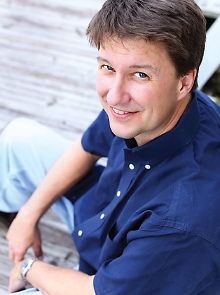Youth Pastors Play Pivotal Role in Teens’ Mental Health
Abstract
Youth pastors are in a prime position to assist adolescents with mental health issues, but they would benefit from more training and interactions with mental health clinicians.
Adolescence is a delicate time for a person’s emotional and mental well-being—biological changes, exposure to agents like alcohol and tobacco, and the stress of school and social life all contribute to potential mental disorders or risky behaviors.
While parents, teachers, and peers are frequently seen as the gatekeepers who can identify problems and offer help, less attention is given to the role of pastors, who regularly work with adolescents through youth groups or other religious activities.
A study by researchers at Baylor University found that youth and college pastors are actively engaged with adolescents on mental health problems, though many did not feel adequately qualified to deal with such issues.
These pastors reported a willingness to collaborate with mental health professionals to better help the youth in their congregations, but also said there was a lack of connection between the religious and psychiatric communities.

“Youth pastors want to get involved and collaborate with mental health professionals, which is a very positive sign,” said Baylor professor Matthew Stanford, Ph.D. “They could be a key group that can help build bridges between psychiatry and faith.”
“As a group, youth pastors want to get involved and collaborate with mental health professionals, which is a very positive sign,” said lead study author Matthew Stanford, Ph.D., a professor of psychology and neuroscience at Baylor.
“Youth pastors tend to be younger, more engaged with social media and the Internet, and have a more modern, psychosocial view of mental illness,” he continued. “They could be a key group that can help build bridges between psychiatry and faith.”
Stanford and graduate student William Hunter compiled survey responses from 94 youth and college pastors from churches across Texas. The survey, completed anonymously, asked questions related to pastor training, types and frequency of discussions regarding mental illness, perceptions of adolescent mental health issues, and experiences working with mental health professionals.
As expected, the pastors encountered many adolescents experiencing problems—only 6 percent responded that they had not worked with someone experiencing a mental illness. Depression was the most common illness cited, with 84 percent of pastors encountering that among the youth they counseled, though anxiety, grief, anger, pornography viewing, and sexual behavior were also cited as common behavior or mental health concerns (all observed by more than 70 percent of pastors).
Key Points
Youth or college pastors from churches across Texas provided responses to a survey on their encounters with adolescents in their congregations with symptoms of mental illness.
Over 78 percent said they worked with adolescents who they knew or believed had a mental illness.
About 50 percent of youth pastors reported receiving some training related to mental illness, but only 26 percent felt qualified to deal with mental illness in their young congregants.
About 75 percent of pastors had referred an adolescent with whom they were working to a mental health or other professional, though they were more likely to refer to Christian counselors than psychologists or psychiatrists.
The most common barrier to working with a mental health professional was a lack of connections to clinicians in the community.
Bottom Line: College and youth pastors identify and work with many adolescents with mental health issues and would greatly benefit from improved dialogue with the mental health community.
However, fewer of the pastors felt prepared to respond to these potentially difficult issues. Half reported having some training related to mental illness, but only 26 percent felt qualified to work with young people dealing with a mental or substance-use problem.
Stanford believes preparation is an area in which seminaries could do more during training.
“They don’t need to train pastors to be junior psychologists or anything like that,” he told Psychiatric News. “But pastors should be equipped to recognize mental distress and how to make a proper referral.”
The pastors were active in referring people who they believed needed help, though they most commonly referred them to Christian counselors. Psychologists and psychiatrists were referred to less often, and they were also infrequently consulted when a pastor was determining whether a youth had a mental illness (about 31 percent had done so).
“Psychiatry and spirituality share the same basic desire—to offer hope and help to those going through despair—but they do so in a complementary, not competitive, manner,” said APA President Paul Summergrad, M.D. “Mental health professionals should look for opportunities to work with spiritual leaders in their communities to help improve their understanding of mental illness and reduce the stigma associated with these disorders.”
Summergrad cited APA’s recently held Mental Health and Faith Community Partnership meeting as an important step in creating a dialogue between the two groups (Psychiatric News, August 1). ■
An abstract of “Adolescent Mental Health: The Role of Youth and College Pastors” can be accessed here.



